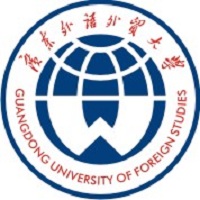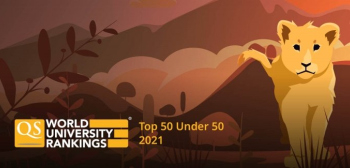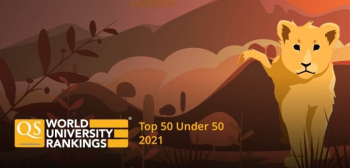Guangdong University of Foreign studies
About
Guangdong University of Foreign Studies is dedicated to training graduates of international caliber and social responsibility. Our goal is to produce graduates who are conversant with international rules and capable of participating in international cooperation and competition. We offer eight disciplines totaling 72 bachelor-degree specialties, 26 of which are concerned with foreign languages teaching and research. As a result, the University is the largest provider of foreign language education in South China.
The University which enjoys a high degree of internationalization, has introduced the model of integrating specialty education with foreign language learning. For foreign language specialties, we employ the model of combining foreign language learning with specialty education or foreign language education with the English language learning. For non-foreign language specialties, we stress the learning of languages concerning the specialties. In 2005, we introduced academic credit system into the bachelor-degree education.
In recent years, the university gained credibility at home and abroad in terms of the quality of education. It was chosen as one of the partners of CAMPUS Asia (whose full name is Collective Action of Mobility Program of University Students) jointly initiated by the head of state of China, Japan, and South Korea with the purpose of training cross-century elites of humanities. It is a member of CIUTI (whose full name is International Standing Conference of University Institutes of Translators and Interpreters) and a member of FIT (International Federation of Translators).Also, it is the founder of WITTA (whose full name is World Interpreter and Translator Training Association).
Today the university serves 19985 full-time undergraduate students and 2583 overseas students from 119 countries and regions. It has established cooperative ties with 374 universities and academic institutes from 53 countries and regions. It offers 202 credit programs for students going abroad or studying in the Chinese territories of Hong Kong, Macao, and Taiwan. Visits to foreign countries and the Chinese territories of Hong Kong and Macao, as well as to Taiwan total 1000 in a year, accounting for 20 percent of a year’s admissions.
The university’s graduates mostly work for large enterprises and organizations targeting international strategic development. Their positions are generally related with foreign language service and foreign trade. It is one of the few universities qualified to supply senior translators and interpreters for the United Nations and other world organizations. In the past three years, the Bachelor-degree graduates’ employment rate reaches 99.83 percent on the average and their salaries rank on top among the Chinese universities.
About
Guangdong University of Foreign Studies is dedicated to training graduates of international caliber and social responsibility. Our goal is to produce graduates who are conversant with international rules and capable of participating in international cooperation and competition. We offer eight disciplines totaling 72 bachelor-degree specialties, 26 of which are concerned with foreign languages teaching and research. As a result, the University is the largest provider of foreign language education in South China.
The University which enjoys a high degree of internationalization, has introduced the model of integrating specialty education with foreign language learning. For foreign language specialties, we employ the model of combining foreign language learning with specialty education or foreign language education with the English language learning. For non-foreign language specialties, we stress the learning of languages concerning the specialties. In 2005, we introduced academic credit system into the bachelor-degree education.
In recent years, the university gained credibility at home and abroad in terms of the quality of education. It was chosen as one of the partners of CAMPUS Asia (whose full name is Collective Action of Mobility Program of University Students) jointly initiated by the head of state of China, Japan, and South Korea with the purpose of training cross-century elites of humanities. It is a member of CIUTI (whose full name is International Standing Conference of University Institutes of Translators and Interpreters) and a member of FIT (International Federation of Translators).Also, it is the founder of WITTA (whose full name is World Interpreter and Translator Training Association).
Today the university serves 19985 full-time undergraduate students and 2583 overseas students from 119 countries and regions. It has established cooperative ties with 374 universities and academic institutes from 53 countries and regions. It offers 202 credit programs for students going abroad or studying in the Chinese territories of Hong Kong, Macao, and Taiwan. Visits to foreign countries and the Chinese territories of Hong Kong and Macao, as well as to Taiwan total 1000 in a year, accounting for 20 percent of a year’s admissions.
The university’s graduates mostly work for large enterprises and organizations targeting international strategic development. Their positions are generally related with foreign language service and foreign trade. It is one of the few universities qualified to supply senior translators and interpreters for the United Nations and other world organizations. In the past three years, the Bachelor-degree graduates’ employment rate reaches 99.83 percent on the average and their salaries rank on top among the Chinese universities.
University highlights
- 2021#201-250
- 2022#151-200
- 2023#251-300
- 2023#151-200
- 2024#201-250
- 2025#251-300
- 2025#101-150
Campus locations
the North Campus,
No.2 Baiyun Avenue, Baiyun District , GUANGZHOU , GUANGDONG , China , 510420
Dalang Campus,
Xiahua Road, Baiyun District , Guangzhou , Guangdong , China , 510000
the South Campus,
Guangzhou Higher Education Mega Center, Panyu District , GUANGZHOU , guANGDONG , China , 510006
Similar Universities
Duke Kunshan University
No. 8 Duke Avenue, Kunshan
西交利物浦大学
No.111 Ren'ai Road, Suzhou
The Central Academy of Drama, China
4E Hong Fu Middle Rd, Changping District
The Chinese University of Hong Kong, Shenzhen
2001 Longxiang Blvd., Longgang District, Shenzhen
























